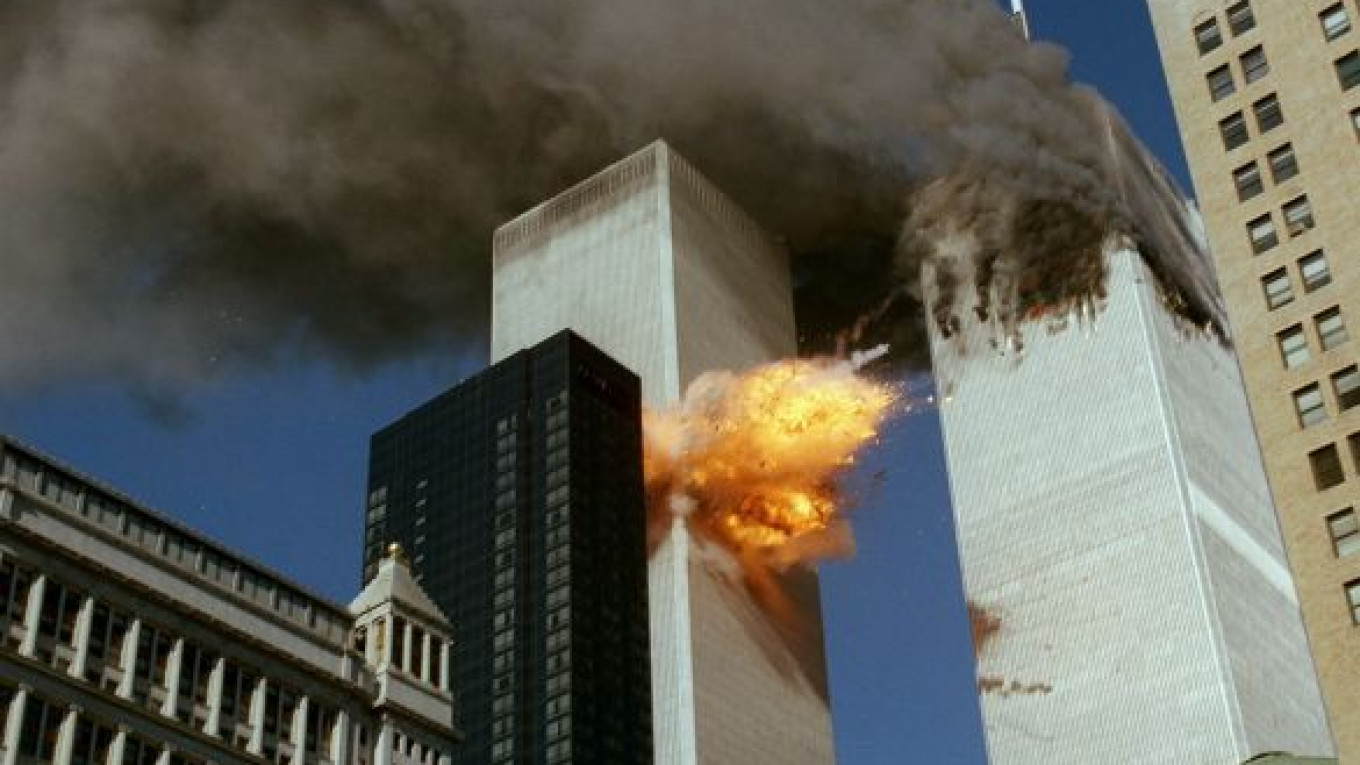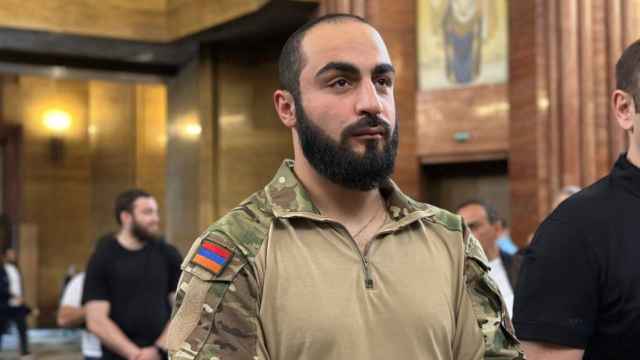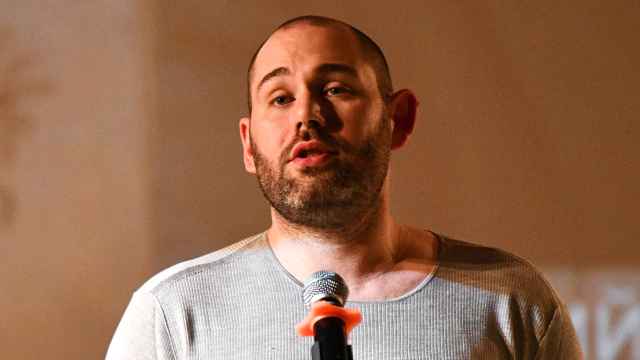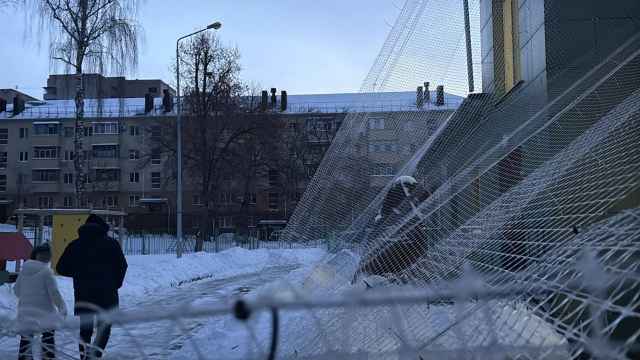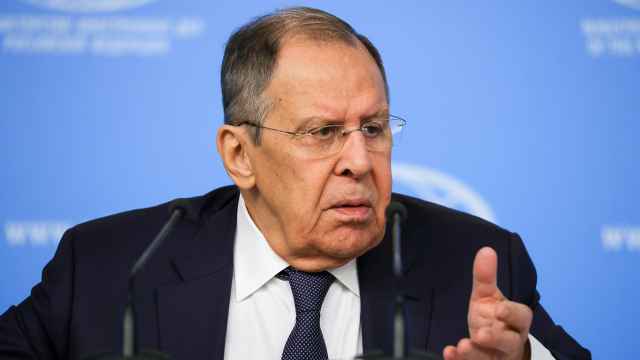NEW YORK — At 21, Vladimir Savinkin was one of the youngest employees at Cantor Fitzgerald, a global financial company whose U.S. headquarters were located on the top floors of the World Trade Center in Manhattan.
Having emigrated at 16 with his family from the Ukrainian port of Odessa, Savinkin had already made big strides in America. He started as a pizza-delivery boy in Brooklyn, excelled as a student at Pace University in Manhattan, held stints at various accounting firms, and finally landed a desk on the 101st floor of the trade center's North Tower.
"For him, the beginning was particularly difficult," said his father, Valery Savinkin.
The young Savinkin left his first love back in Odessa and was so homesick that immediately upon setting foot in the United States, he decided to start saving money for the trip back.
That trip in 1997 lasted all of two weeks. Savinkin's love interest had long since found another suitor, and he no longer felt a sense of camaraderie with his old buddies back in Odessa. "It was a wake-up journey," his father said. "Vladik realized that there was no more Odessa and that his new life was in America. He became extremely focused and never looked back."
Savinkin, 56, met a reporter in the living room of his family's ground-floor apartment in Brighton Beach, the Russian enclave in Brooklyn on the shores of the Atlantic Ocean. In tradition with Russian hospitality, he puts on the table bagels, ham, cream cheese, butter, jam, coffee and juice for an impromptu late breakfast.
A visitor wouldn't instantly feel the connection to the fateful events of Sept. 11, 2001, but a detour to Vladimir Savinkin's bedroom quickly reveals the horror of those last hours when his heartbroken father desperately tried to reach him by phone. Photographs of Vladimir's life cover a wall, and his old, dusted computer still sits on his desk.
Sept. 11, 2001, began as a gorgeous, sun-drenched morning in New York. Savinkin's father, a computer programmer, had just begun his work shift in Jersey City. The windows of his office provided a clear view of the two glimmering towers soaring in the sky across the Hudson River. Minutes before 9 a.m., he heard on the news that a plane had struck the North Tower.
"I could see the smoke billowing from it," he said, "but couldn't comprehend the magnitude of the devastation because the plane had hit it from the other side."
He rushed toward the train station, one stop away from his son, but by that time transportation officials had already closed the entrance. While trying to negotiate with them, he saw a flash and heard a roar. Initially he thought that it might have been the chopper flying nearby and only later did he realize that it was the second hijacked Boeing 767 approaching the South Tower.
Savinkin spent the next 90 minutes, the hardest minutes of his life, glued to the phone at his office, desperately hoping that his son might call. That call never came. Eventually an order to vacate the premises was broadcast over the emergency notification system.
"As we exited the building," Savinkin said in a choking voice, "I saw it with my own eyes — the tower collapsed, the tower where my son was working."
The next day Valery Savinkin and his wife, Valentina, went to Manhattan with photos of their son to post in squares, on street light poles and other public places.
In the weeks following the tragedy, passers-by in Manhattan could see thousands of these "missing persons" posters hurriedly made by relatives.
Police refused to touch them, even though their distribution was a violation of city regulations.
The relatives waited in hope for months after the tragedy, even though only six people were eventually pulled out alive from the rubble of the towers.
• • •
Five floors above Vladimir Savinkin's office in the North Tower, a business breakfast was scheduled that morning at Windows of the World, the posh restaurant atop the World Trade Center.
Alexander Braginsky, a 38-year-old manager at Reuters financial services, was about to give a lecture on job education at the breakfast to newcomers from the Association of New Americans.
Braginsky was filling in for a colleague who couldn't make it that day. Braginsky also came to the United States from Odessa, but in 1979 as a 16-year-old with his mother, Nelly Braginsky. He quickly established himself on a path to success.
Braginsky's educational excellence and career growth earned him a spot on host Vladimir Molchanov's popular Russian television show "Do i Posle Polunochi" (Before and After Midnight) in early 1991. He was featured in a segment devoted to new Russian-Americans.
Braginsky was happily married and lived with his wife in the affluent town of Stamford, Connecticut. His mother and stepfather simply called him "Alik."
As millions of people across the world were glued to their television sets and watched in disbelief the scenes of horror unfolding at the World Trade Center, Nelly Braginsky was initially unaware that her son was in the North Tower.
After she found out, Braginsky and her husband, Mikhail Khazmats, attempted to get close to the site but were turned back by the police. On the morning of Sept. 12, they started searching in the hospitals in New Jersey, where bodies from the carnage were being transported. The same day she learned that Alex's wallet has been found — smashed and warped.
"I realized then that Alex had probably thrown himself out the window," Nelly Braginsky said. "That's how I feel. He was not the kind of person who would have waited to get suffocated by smoke and slowly die."
• • •
While tragedy and grief know no ethnic and national boundaries, people of similar backgrounds naturally gravitate toward one another. Soon after the attacks, Valery Savinkin found out that his son was working at Cantor Fitzgerald with Marina Gertsberg, 25, another expatriate from Odessa. In a cruel twist of fate, Marina had joined the company exactly a week before Sept. 11. She also perished that day.
The two families, the Savinkins and Gertsbergs, grew closer and in 2002 helped establish the September 11 Family Group, a Brooklyn-based nonprofit organization comprised of family members of Russian-speaking victims.
The Family Group collected funds and with a nod from the local authorities created 11 September Memorial Square in a small park near the ocean promenade in Brighton Beach. A weeping willow tree hangs above a memorial plaque that displays the names of 18 Russian-speaking Americans who lost their lives that day.
Every year and usually every few months the families gather at this place to honor their loved ones. They often sing two songs that group members composed for the occasion: "A Mother's Prayer" and "Two Candles Like Two Towers."
"Those who were brought together by grief after Sept. 11, 2001, 10 years ago are now brought together by the memory of that tragedy — but most of all by the memory of their loved ones and their desire to nurture that memory, to make it permanent for all those with whom we share the tragedy," Savinkin's father said.
There is no definite count on the number of Russian-speaking victims of the Sept. 11 attacks. The ABC television network in its initial news reports put the number at 16 — the most conservative estimate.
Other unofficial reports estimate the number of ethnic Russians at 25 to as many as 75. The higher figure includes all those from the former Soviet Union who may have used Russian as their native tongue.
Besides the wallet, only a small bone fragment has been positively identified as that of Alexander Braginsky. His mother finally buried that fragment this June as hopes to uncover other body parts faded.
The Savinkin family has performed burial rituals for their son three times.
In November 2001, the city began to issue death certificates based on witness testimony, and the Savinkin family received an urn with soil from Ground Zero but no traces of their son. Identifiable remains of him were found in 2002 and 2003 and were consecutively buried in the same grave.
In 2007, a memorial plaque commemorating Vladimir Savinkin was erected at his High School No. 83 in his native Odessa.
Besides his parents, Savinkin left a younger sister, Galina. At the time of his death, she was entering adolescence, and the brother-sister emotional bond was growing stronger as they had more things to share, the father said.
Alexander Braginsky, on the other hand, was an only child.
The Braginsky family received $800,000 from their son's life insurance, and his mother donated $200,000 to Queens College where he graduated in 1987 to name a conference room and to endow a scholarship fund in his name. Initially things went smoothly, but then the mother learned that the college had not awarded the scholarship since 2008. Upset, she initially considered legal action.
But she said Wednesday that the dispute with Queens College had been settled amicably. She did not elaborate.
Queens College spokeswoman Phyllis Cohen-Stevens said only that the college does not administer the scholarship anymore.
Both the Braginsky and Savinkin families wouldn't discuss how much compensation they received from the U.S. government, which established The September 11 Victim Compensation Fund in November 2001 to protect American Airlines and United Airlines — the airlines whose planes hit the World Trade Center — from inevitable bankruptcy. The aim of the fund was to compensate the victims of the attacks or their families in exchange for their agreement not to sue the airlines involved.
By the time the fund concluded making settlements in 2007, $7 billion had been distributed and 97 percent of the victims' families had been paid. The average payment for a death was $2 million, while the largest payment was $7.1 million.
Braginsky's mother, meanwhile, has also focused her charitable activities on Israel, where in 2002 she established a memorial park in the city of Haifa informally known as "Alex Park." She said she likes Haifa because it reminds her very much of Odessa, the Black Sea port where she and her son grew up.
Vladimir Savinkin's last girlfriend, Olga, has not dated since he died, his father said. Also an Odessa native, Olga works as a graphic designer and maintains warm relations with the Savinkin family.
The family each year receives an invitation to attend a memorial service organized by Cantor Fitzgerald, the financial company at the World Trade Center where Vladimir worked. With 658 of its employees killed on Sept. 11, Cantor Fitzgerald was the single entity that was left the most devastated in terms of the loss of human lives.
Both the Braginskys and Savinkins plan to attend a memorial ceremony Sunday at Ground Zero that will be presided over by New York Mayor Michael Bloomberg. Later in the day, Savinkin will co-lead a gathering at their local September 11 memorial park in Brooklyn, where at least 400 people will remember those who died.
Nelly Braginsky intends to participate later in the day in a meeting near Ground Zero against the Islamization of the United States. It concerns a controversial plan to build a Muslim Cultural Center in the vicinity of the Ground Zero, informally known as "The Ground Zero Mosque." Despite Mayor Bloomberg's support for the project, it has garnered considerable public resistance.
Braginsky is adamant in her determination to prevent the cultural center from opening so close to Ground Zero, a shrine to those who died. If it opens, she said, "The relatives of those who perished in the 9/11 attacks will end up praying for their loved ones at the same time that the imam calls for prayer from the minaret on the 13th floor and shouts 'Allah Akbar!' through the loudspeakers. Five times a day."
A Message from The Moscow Times:
Dear readers,
We are facing unprecedented challenges. Russia's Prosecutor General's Office has designated The Moscow Times as an "undesirable" organization, criminalizing our work and putting our staff at risk of prosecution. This follows our earlier unjust labeling as a "foreign agent."
These actions are direct attempts to silence independent journalism in Russia. The authorities claim our work "discredits the decisions of the Russian leadership." We see things differently: we strive to provide accurate, unbiased reporting on Russia.
We, the journalists of The Moscow Times, refuse to be silenced. But to continue our work, we need your help.
Your support, no matter how small, makes a world of difference. If you can, please support us monthly starting from just $2. It's quick to set up, and every contribution makes a significant impact.
By supporting The Moscow Times, you're defending open, independent journalism in the face of repression. Thank you for standing with us.
Remind me later.


